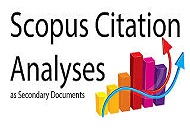Evaluasi Implementasi Program Kelompok Usaha Bersama (KUBE) dalam Mengatasi Kemiskinan di Kota Mataram
DOI:
https://doi.org/10.33394/jk.v4i2.1129Keywords:
Evaluasi, KUBE, KemiskinanAbstract
Abstract: This research aimed to know achieving organizing program of KUBE to solving poverty. Research
method used descriptive research with CIPP model evaluation research. Determining method of subject was
purposive sampling. Technique of data collection used interview technique, observation, documentation
and questionnaire. Technique of data analysis used descriptive qualitative and quantitative. Based the
result of research, it could be concluded that organizing Business Group (KUBE) program at Lingkungan
Karang Buaya was effective, it could be seen from changing of members’ condition before and after joined
Business Group (KUBE) program. Beside it has criteria that stated the program was effective, namely there
was alliances and partnerships, members included poor families and productive age, managers have
competence in management field of entrepreneurial, high participated from members of group and there
were activities which supported development of groups, there was improvement in revenue and
entrepreneurial skills of group members.
Â
Abstrak: Tujuan penelitian ini adalah untuk mengetahui keberhasilan pelaksanaan program Kelompok
usaha Bersama dalam mengatasi kemiskinan. Metode penelitian yang digunakan adalah penelitian
deskriptif dengan jenis penelitian evaluasi model CIPP. Metode yang digunakan dalam menentuan subjek
adalah dengan menggunakan purposive sampling. Pengumpulan data menggunakan teknik wawancara,
observasi, dokumentasi dan angket. Teknik analisis data yang digunakan adalah deskriptif kualitatif
dan kuantitatif. Dari hasil penelitian dapat disimpulkan bahwa pelaksanaan program Kelompok Usaha
Bersama “Dhiya MD†di Lingkungan Karang Buaya berjalan efektif hal ini dapat dilihat dari perubahan
kondisi anggota dari sebelum maupun sesudah mengikuti program Kelompok Usaha Bersama. Selain itu
terpenuhinya kriteria-kriteria yang menyatakan program berjalan efektif yaitu adanya jalinan kerjasama atau
kemitraan, anggota termasuk keluarga miskin dan termasuk dalam usia produktif, pengelola memiliki
kompetensi dalam bidang manajemen pengelolaan wirausaha, tingginya partisipasi dari anggota kelompok
dan adanya kegiatan-kegiatan yang mendukung perkembangan kelompok, serta adanya peningkatan
pendapatan dan kemampuan berusaha anggota kelompok.
References
Badan Pusat Statistik. 2015. Jumlah Penduduk Miskin Bulan September 2013 mencapai 28,55 juta orang. http://www.bps.go.id/webbeta/frontend/Brs/view/id/255, Diakses
tanggal18 Februari 2015 pukul 20.33
Departement Sosial RI. 2004. Pengembangan Usaha Ekonomi
Produktif Fakir Miskin Melalui Kelompok Usaha Bersama Dan
Lembaga Keuangan Mikro. Jakarta: Departement Sosial RI. Direktorat
Jenderal Bantuan Jaminan Sosial Dan Direktorat Bantuan Fakir
Miskin.
Hikmah, Herry.ed. 2005. Panduan Operasional Program Pemberdayaan Fakir Miskin diWilayah KUBE Rintisan Pusat. Departemen Sosial RI.
Mahsun, Mohamad. 2006. Pengukuran Kinerja Sektor Publik.Yogyakarta: BPFE Yogyakarta.
Madaus, G.F and Scriven, M.S. and Stufflebeam, D.L. 1993. Evaluation
Models, Viewpoints on Educational and Human Services Evaluation.
Boston: Kluwer Nijhoff Publishing.
Rizka, M. A. (2014). Evaluasi Implementasi Program Kursus Wirausaha Desa (KWD) untuk Mengatasi Pengangguran. Jurnal Kependidikan,
(4), 369-381.
Sax, G. 1980. Principles of Educational and Psychological Maesurement
Downloads
Published
How to Cite
Issue
Section
Citation Check
License
License and Publishing AgreementIn submitting the manuscript to the journal, the authors certify that:
- They are authorized by their co-authors to enter into these arrangements.
- The work described has not been formally published before, except in the form of an abstract or as part of a published lecture, review, thesis, or overlay journal.
- That it is not under consideration for publication elsewhere,
- That its publication has been approved by all the author(s) and by the responsible authorities – tacitly or explicitly – of the institutes where the work has been carried out.
- They secure the right to reproduce any material that has already been published or copyrighted elsewhere.
- They agree to the following license and publishing agreement.
Authors who publish with JK agree to the following terms:
- Authors retain copyright and grant the journal right of first publication with the work simultaneously licensed under a Creative Commons Attribution License (CC BY-SA 4.0) that allows others to share the work with an acknowledgment of the work's authorship and initial publication in this journal.Â
- Authors are able to enter into separate, additional contractual arrangements for the non-exclusive distribution of the journal's published version of the work (e.g., post it to an institutional repository or publish it in a book), with an acknowledgment of its initial publication in this journal.
- Authors are permitted and encouraged to post their work online (e.g., in institutional repositories or on their website) prior to and during the submission process, as it can lead to productive exchanges, as well as earlier and greater citation of published work.
- Open Data Commons Attribution License, http://www.opendatacommons.org/licenses/by/1.0/ (default)

This work is licensed under a Creative Commons Attribution-ShareAlike 4.0 International License.








